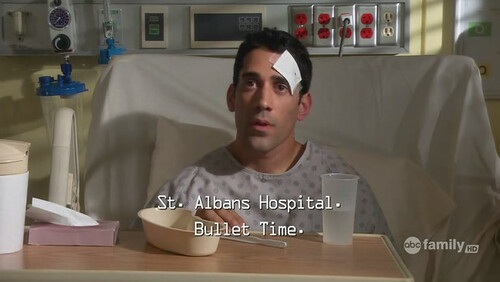TOM FRANCIS
REGRETS THIS ALREADY
Hello! I'm Tom. I'm a game designer, writer, and programmer on Gunpoint, Heat Signature, and Tactical Breach Wizards. Here's some more info on all the games I've worked on, here are the videos I make on YouTube, and here are two short stories I wrote for the Machine of Death collections.
Theme
By me. Uses Adaptive Images by Matt Wilcox.
Search
Pilot: Terriers
Opens on a conversation between two unappealing men in a pickup. A few lines into it, I know I’m going to love this show. Nothing about the premise is interesting or original, and the plot of the pilot is so over-familiar it could have been traced. But smart writing shows instantly, shows constantly, and never stops being a pleasure. Continued
Pushing Daisies Continues To Be Incredible

The Incredibles came out around the same time as Half-Life 2, and I remember feeling relieved – amongst much else – to see that there are people in other media cramming as much genius, expertise and love into every square inch of their work. If anything The Orange Box’s diversity makes its brilliance a more dazzling achievement than Half-Life 2, and Pushing Daisies is right here to give off that same reassuring glow: it’s okay, people outside of Valve can be this clever too.
The second episode really does cement it as a masterpiece of that order. I absorb high-bandwidth, info-dense, fast-talking stuff like The West Wing with relish, but the hurtling pace and sheer concentration of brilliant ideas, stylistic flourishes and exquisite jokes in Daisies leaves me reeling. It truly is just joyous, and insane, and sickly and dark all at once.
Quote From What I’m Watching
“Ah, it’s so nice to be eating with a fork instead of sticking one into someone’s neck. Heheh, I’m kidding. I’m a government accountant! Why would I kill that guy in Budapest?”
Some TV That Was Mostly Shown Last Year In Some Places
Last one of these – I won’t do a music one because I didn’t really get into much last year, and everyone’s heard Florence and the Machine. The Music Downloads tag has everything I liked enough to share.
Is this list in order? If you care, no. If you don’t, yes. Continued
State Of Things
I’d just like to say, this comments thing has been awesome. Thanks to everyone who’s added words to this page – they’ve been consistently clever and well-spelt. I knew you were all awesome, of course – I looked at my stats very carefully before deciding to have comments on the main page. According to the percentage of you using Firefox, James readers are approximately 1800% cooler than the general populace.
To celebrate I have worked out how to make Firefox realise I have an RSS feed, so that little orange broadcast icon should appear down the bottom. You can add it at as a Live Bookmark, or cram this link into a feed reader. You can even feed that feed to your personal Google page.
I am excited. We are about to get hit by a tsunami of amazingness, and I don’t see it stopping before the end of the year. Next month sees the return of Lost and The OC – the two most addictive programmes ever – and finishes off with the release of Serenity, the film of the third-best series ever, and a pretty much guaranteed entry into my elitist top films list. October is FEAR month, and given that I’ve now played the bizarrely early demo through about thirty-six times, I see myself getting lost in that pretty hard. Somewhere in that interim Hitman: Blood Money and Call Of Duty 2 are both due, but take that with a pinch of salt until you hear it from someone who knows anything. Contracts left a bitter taste in my mouth, so excitement over Blood Money is running low, and Call Of Duty 2’s promise is basically that it’ll put you through living hell, but both are bound to be an experience. I feel like I am owed Dreamfall fairly soon, but I don’t know where that’s coming from.
Let’s hope all that happens before mid-November, because in all probability subsequent events will be rendered irrelevant. I will not be playing other games for a few months. For the purposes of that claim, ‘reality’ counts as a game. I am waiting, of course, longing for sweet, sweet Oblivion. Which has Wonder Woman in it.
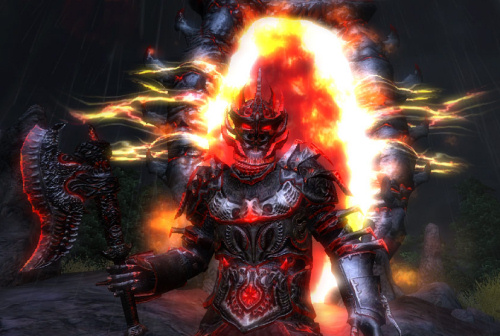
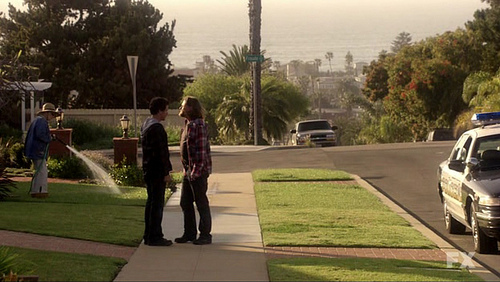
Terriers Again
I was pretty rude about the plot when writing about the pilot episode, but impressed by everything else. This is a quick update to say that, in the four episodes since then, that simple set up has changed dramatically every episode, and led to some superb twists and tense situations. Continued
The Best Three Things On TV

Dexter: The new season is excruciatingly tense. It’s partly the suspense over how he can continue to get away with it when everyone seems to be closing in on him, but for me it’s also the maddening worry that they’re going soft, trying to humanise and redeem Dexter. In the end it’s a better show for continually threatening to do that without ever making good. I’ve never been so relieved to see a knife sunk into a helpless human torso.
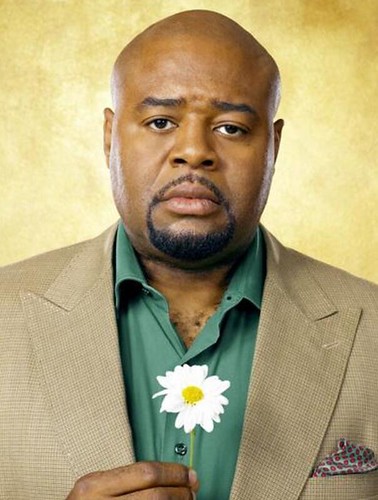
Pushing Daisies: A light-hearted supernatural murder mystery about a pie-maker who can resurrect the dead – for one minute. The premise is gloriously fiddly: his touch brings the dead to life, but he has to kill the resurrectee with a second touch within a minute, or a random bystander will die in their place. The obvious application is asking people who murdered them, but they’re not always much help. The dialogue is sparklingly lyrical, the pace is refreshingly swift and the stars winningly chipper and likeable. And it has narration that doesn’t suck.

Damages: Has somehow stayed miraculously on the rails after a seemingly unfollowable pilot. A legal drama with a symmetrical cast of characters on either side, but where the divide between good and evil is ignored by all – especially the writers. Ted Danson makes such a compellingly sympathetic villain, and Glenn Close such a frighteningly ornery hero, that you end up riveted by the duel but unable to root for either side. The web of bizarre, volatile relationships between characters has the plot spasming wildly, untenably with episode. It seems to become more impossible to resolve with every step the two timelines take towards each other, but never cops out or undoes its awful machinations.
The Finale Post
I’ve been delaying this because I couldn’t get the Javascript needed to make spoilers togglable work. I’ve now got to the stage where the code is exactly right except insofar as it doesn’t do anything, so I’ve given up. So I’m afraid you’re just going to have to do it the old fashioned way, and not read them if you don’t want to read them. It goes Lost, Heroes, 24, in case you need to skip.
Lost: quite good
I seem to be alone in this, but I rather liked the end to this series. The complaints I’ve heard are all things I’ve long since come to expect from every episode of Lost – we all know it’s no longer Good, right? Given that, and pretty low expectations from everyone telling me how much it sucked, I thought this was one of the only really fun episodes in season three.
It was even semi-clever: episodes always begin and end with the present-day bits, and dip into the flashbacks in between. This one does too: it’s just that the series has essentially moved several years into the future, and is tying up the existing plotlines in flashbacks to the island. I think this may actually be the format from now on, which would mean a long-overdue end to the flashback stories that tell you nothing and make you like the characters even less.
Resolution: pretty good
Finding out for sure that they get rescued is a pretty big deal, even if the moment itself hasn’t featured. Recent hints at some of the more supernatural theories like hell, ghosts, and near-death hallucinations are all out: they’re just on an island, it exists, they get off it. Future Jack’s sifting of maps suggests that they escape the island themselves rather than being found by helicopters or boats, since it implies that the island’s location is still a mystery. More importantly, Charlie died. Ha!
Plot holes: moderate
Plenty of minor “Why?”s, but the only really irritating one was future Jack’s reference to his father as alive. It was obvious from the start of the first episode that it was a flash-forward and not a flashback, and this was a pretty pathetic ploy to try to throw idiots off the trail by flat-out lying to them. It’s an indictment of how predictable and cheap the writing has become that I thought it more likely they were lying to me than that I was mistaken about the twist the flashback was leading up to.
Excitement: none
It didn’t bother me, but yeah, no tension or intensity at all. War with the others? Don’t care. Mikhail gone? Don’t care. Dynamite detonators killed? Don’t care. iPhone girl evil? Don’t care. The excitement of Lost was always the bizarre mysteries, the polar bears and four-toed statues. The politics of The Others and the capture of major characters is mundane and tired. If there had been any exciting scenes, they would have been diffused by the endless cutbacks to the tedious Jack plotline, the only payoff for which was wasted by being too obvious too far ahead of time.
Irritations: moderate
Interminable Jack screentime accounting for almost all of that. Didn’t mind about Mikhail coming back to life, because I didn’t really care whether he lived or died, and we already knew Charlie would, so it only achieved the inevitable. Ben facing the survivors alone was dumb, and Jack not killing him was dumb, but again, don’t care enough to care.
Highlights: about six?
Survivors commit mass murder! Brilliant! Hurley runs some dudes over! Brilliant! Charlie drowns! Brilliant! Hurley brags about saving everyone! Brilliant! Evil new high-tech faction maybe! Brilliant! Jack is pathetic and doesn’t end up with Kate! Brilliant!
Cliffhanger: er
I watched it last night, and honestly couldn’t tell you how it ended. We didn’t find out who was in that coffin in the future (I thought Juliet, but Graham says it’s referred to as a ‘he’), but ‘someone dies in future’ is not exactly a revelation we’ll all be holding our breath for. What happens about the iPhone is about the only thing I’m waiting to find out, but I could die happy not knowing.
Heroes: fun but frustrating
The climax couldn’t help but be enjoyable, but the series really lost its nerve, heart and brain at the critical moment. I feel about this almost exactly the way people seem to feel about the Lost finale – I enjoyed it at the time, but the more I think about it the more angry it makes me. It was an utterly gutless and nonsensical finalé, and they’d spent so long building to a smart and spectacular one. At least Lost only ever promised a gutless and nonsensical one.
Resolution: fucking none!
What the hell have I been doing for these twenty hours of my life? At the end of it, both people who can cause the explosion are still alive. Nothing happened.
Plot holes: numerous, enormous
DL gets shot! Why didn’t he use his power? Sylar gets run through by a slow, screaming Japanese businessman. Why didn’t he use his powers? Peter needs to be airlifted into the sky by his non-invincible brother, even though Claire had a better solution. Why didn’t he use his powers? Sylar lies down after one stab, everyone walks away. Did they forget he had powers? Guys, if you’re going to make a show about superpowers, you should occasionally remember that your characters have them.
Excitement: high
But that’s a testament to the build up rather than the finalé itself. We knew, or thought we knew, exactly what would get resolved here, and we’d been waiting for it for a long time. Then it didn’t get resolved.
Irritations: vast
All others pale in comparison to how pathetically gutless, tiresome and moronic it is to have the main villain not really be dead after all the heroes assume he is. I literally couldn’t believe they were doing it. If I didn’t have a little faith that they’ll try to move onto a new plotline for the second series, I would have stopped watching for good then and there.
It’s not just that it makes the characters stupid, it balances a huge plot twist on the absurdly precarious notion that the characters within this world have no concept of how it works. You don’t just get frustrated with them for being so stupid, you cease to understand them as characters. Their actions are inconceivable. There’s no longer any way to comprehend this universe.
Highlights: three tiny ones
It sad to say, but the biggest revelation and best moment in the finalé of an extraordinary 23-episode series was finding out Mr Bennet’s first name.
Cliffhanger: kind of
The chapter two teaser was a pleasantly clean break, but I’m not sure what it was trying to tell us. Do they have to stop an eclipse in this one?
24: good
This season a nuclear bomb went off in California in the fourth episode, so it’s been a bit of a low-key second-half by comparison. They’re trying to avoid a diplomatic faux-pas with Russia by preventing their defense secrets being handed over to the Chinese. Even that’s resolved very near the start of this finale, and the rest of the episode is about trying to rescue a single, rather unpleasant person from becoming collateral damage in the military resolution of the larger issue. But it was more about the people you like doing unexpected and pleasing things, and for that it was probably the most enjoyable of these three.
Resolution: near-total, as ever
It even ties up a plotline started three seasons ago, in which one of Jack’s many screw-the-rules operations actually has enormously grave consequences.
Plot holes: just the one
So the Russians, whose insistence on absolute proof of the destruction of The Component has been the driving force for this entire plotline, are delighted with the Vice President’s proposed plan of just bombing the oil rig it might be on and assuming it’s destroyed? Even if you can believe that, it’s impossible to believe that the VP would even have suggested it, so far is it from the result they’ve been pressuring him for all along. I don’t mind them doing the whole “You can’t call in an airstrike, X is still in there!” plotline again, but contorting the logic of the premise so horrifically to support it is sad.
Excitement: dangerously low
I think most of us are hoping Josh, Jack’s 16 year-old nephew with the awful fringe, will die. But even then we don’t really care either way. Those are the only stakes here, and 24 is supposed to be all about stakes. After a nuke on American soil the writers didn’t seem to know how to keep upping the ante, and ended up doing the opposite. It’s become steadily more downbeat and less intense as the series has gone on. It’s not a fatal flaw, but it’s a shame; the reason I fell in love with the series in the first place was the relentlessly escalating horror of what they were prepared to inflict on the country and their potagonist.
Irritations: none
24 established its flaws very early on in its life, so everyone still watching them has long come to terms with every silly thing it can do. I actually enjoy waiting for Jack to go rogue again (as he does three separate times in this episode alone). The only irritating recurring theme was his family being repeatedly kidnapped, and they’ve mostly learned to avoid that one these days. Technically Josh is family, but he wasn’t kidnapped to get at Jack – the villain’s entire plan revolved around him, the grand kidnapping failed, and in the end the government simply handed him over.
Highlights: several, but one in particular
This was the second episode of the season to feature some really brilliant writing. The first being an exchange early on between ex-president Logan and his much-maligned ex-wife, long since mad.
“Martha, the last thing I wanted to do was hurt you.”
“You always managed to get to that last thing, though, didn’t you?”
Here it was the fantastic clash between Jack and Defence Secretary Heller, whose life he’s saved around four hundred times at this point. (And who we saw die, I seem to recall, but whatever.) Heller’s forbidding Jack to see his mentally ill daughter, his long-term girlfriend, on the quite reasonable basis that everyone Jack knows dies. Jack, also quite reasonably but incredibly uncharacteristically, flips out.
“How dare you? How dare you? All I did, all I have ever done, is what you and people like you told me to.”
All the best moments in 24 are when Jack’s had enough. He takes more than anyone reasonably could, but the writers just keep throwing the trauma and tragedy at him until he snaps. He goes the entire series expressing nothing but grim determination, so when he finally does flare up it’s spectacular and genuinely emotional.
In season three this also came in the finale: after hacking his own partner’s hand off with a fire axe, on top of everything else, he excuses himself to his car for a moment and just sobs. In season four it came earlier on, when he was forced to threaten a doctor at gunpoint to abandon critical surgery on his girlfriend’s ex-husband, shortly after said ex-husband had saved his life, and does so with a look of utter panic.
Here it’s that line, when he can no longer take the callousness with which he’s discarded by his superiors when his task is complete. For the most part they can be civil about it, and cite official guidelines about plausible deniability that explain why they have to fire him, credit his success to someone else, arrest him, sacrifice him to terrorists or hand him over to the Chinese.
But this time it’s literally personal: he’s lost so much to them and the job that he can’t be allowed near the only personal life he has left, as broken as it is. And he ends up saying more or less what I said about him the last time I wrote about 24: that he’s barely a person, just a grimly logical tool who methodically achieves the objectives set for him. Ironically, it’s his most human moment yet.
Cliffhanger: none
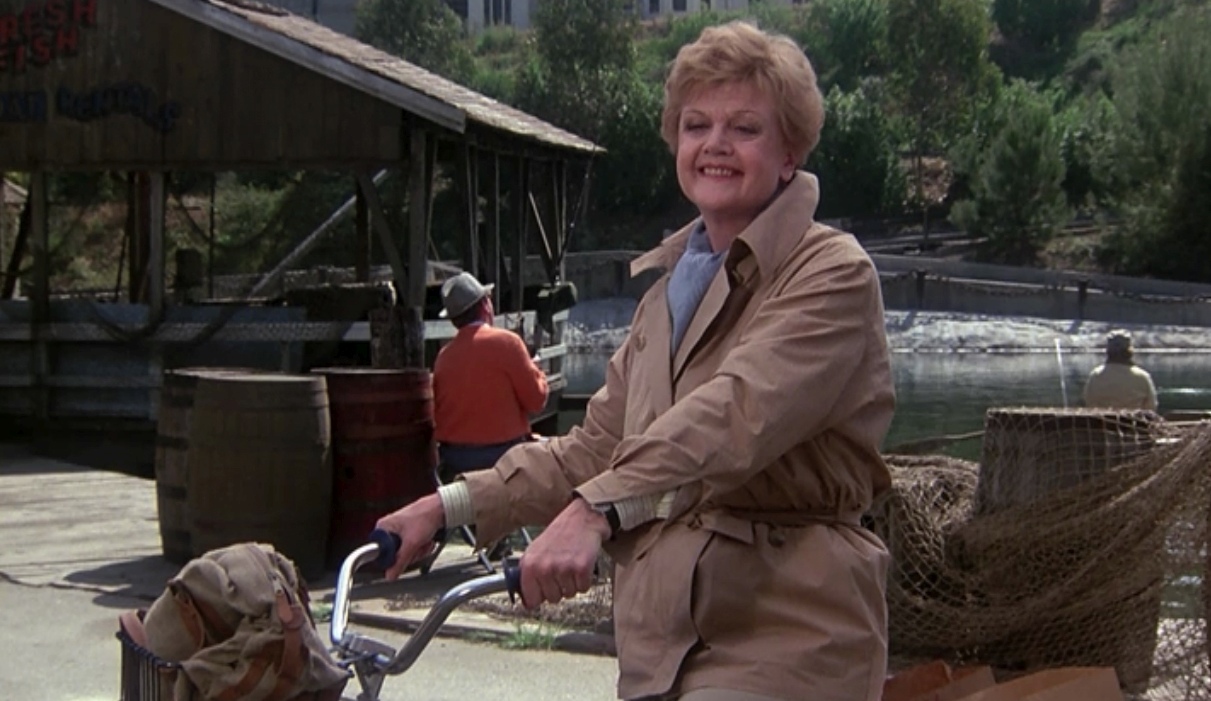
The Formula For An Episode Of Murder, She Wrote
My life has changed in many ways since working for my own company, but perhaps the biggest is that I can now watch Murder, She Wrote over breakfast and/or lunch. This is great, but it’s also ingrained the show’s weirdly specific formula in my brain, and now I feel I must write it down. The following is how about 70% of its episodes go – the exceptions are kind of nuts. Continued

The Good And The Bad Bits Of The Newsroom
Aaron Sorkin’s current show about a TV news show was panned by reviewers, but I quite liked its first episode and thought its problems were fixable. The reviewers had seen the first four. I now see what they were talking about.
It’s such an extraordinary mix of exciting potential and staggeringly clumsy writing that I’ve had trouble stringing together a sentence about it that uses the word ‘but’ fewer than five times. So I’ll give up on a coherent overview and just list the things I like and don’t like. Continued
The Maths Of This Week’s Futurama
Futurama hasn’t been this good in years. It’s been very funny this season, and I think most of the movies had some inspired gags, but this week’s was the first time the plot’s been as good as the jokes since the good old days. It did what all the best episodes do: found the humour value in an old sci-fi concept and took it to ridiculous extremes. Continued
The Middleman
A few good ways to win me over, if you’re thinking of making a TV show with just me in mind:
– Female protagonist I don’t hate. Wendy Watson hereby joins the other… three.
– A character who doesn’t take half a fucking hour to get over every surprising turn of events. Writers! The stuff you’re writing didn’t really happen, so watching your characters refuse to believe it happened is not actually terribly entertaining for us!
– Conversely, disbelief at just how idiotic your plot is makes them highly entertaining.
– Max Payne references.
– Scenes where a character starts to say something about what we’re seeing, then thinks better of it.
– Ultra-mild curse words, ideally accompanied by a character who actually does swear her face off at the appropriate times. Somehow that makes the gosh-darnits seem extra mild.
– Ending an episode with a Russian Futurists song. This one was laser targeted at me.
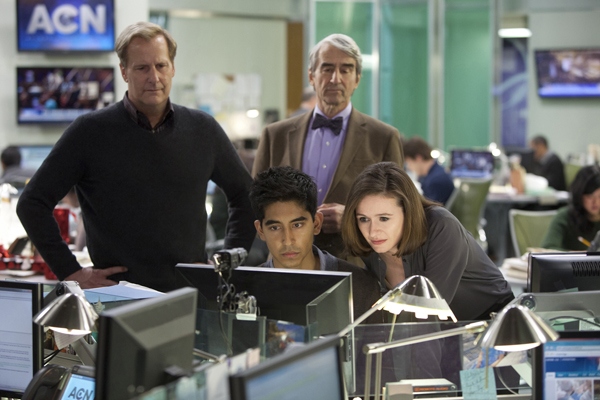
The Newsroom
That leaked Aaron Sorkin script I wrote up a while back is now a show, called The Newsroom. It goes behind the scenes of a nightly news show with a grouchy celebrity anchor, and revolves around him, his new executive producer and the crew. This means I would watch it religiously even if it wasn’t a Sorkin thing – I have no particular interest in the news, but every show or film made about it seems to be great. Continued
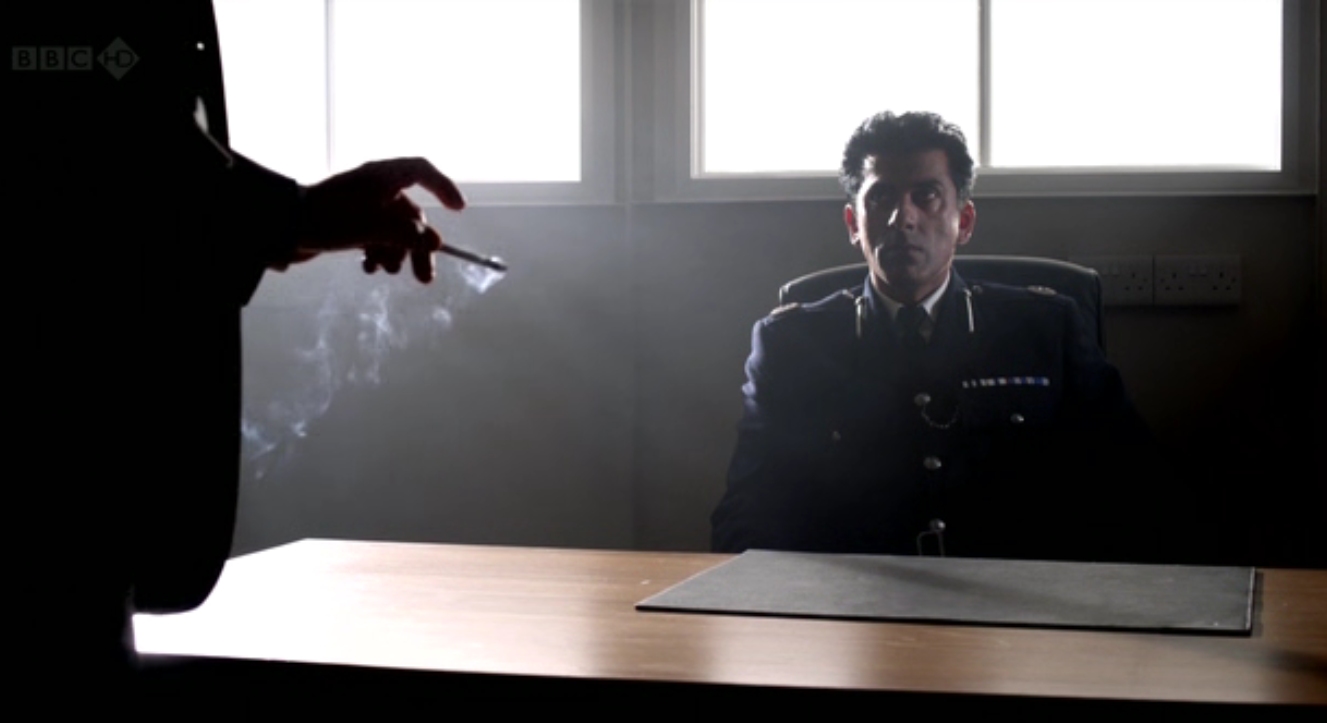
The Shadow Line Lines In The Shadow Line
The Shadow Line is finished now, and it was good until it got a bit wanky at the end. It’s nice to have something with a plot that genuinely requires some processing between episodes, and the cast has made me a fan of four of five actors I’d never seen before. Continued
The West Wing
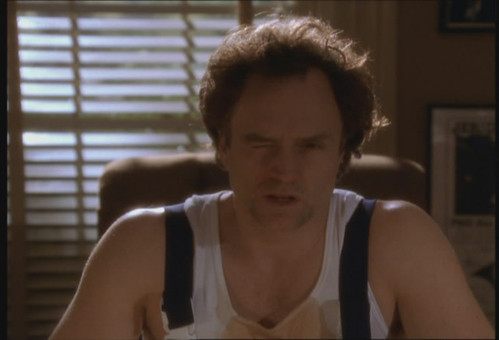
Despite being utterly unlike anything else I like in theme or type (it’s a White House drama (you might think that’s obvious from the title, but if so you’re probably American – I’ve still never heard of the West Wing outside of this series)), it’s absolutely brilliant. One thing about it goes some way to explaining the anomaly, though – it’s a fantasy. I imagine people who keep up with politics could have a nasty experience trying to swallow its picture of a government in which a near-perfect tension between pure democracy and educated liberalism decides policy, and the people in power are all heartbreakingly good-willed and astonishingly talented. To call it arrogant for that is like accusing Star Trek of exaggerating our space-travel capabilities. Not a documentary! Fiction is where they tell you a story and, while knowing the story isn’t true, you follow the plot and maybe enjoy it. Where did we get this idea that art’s supposed to just record what things are like? That’s a talentless, menial task (says a journalist); art should be fantasy, it should use imagination to show how things could be and get people excited at the idea. Beyond entertainment, that’s its only task, and it’s a much loftier and more important calling than commenting on how things really are.
The thing that sticks with me from The West Wing is the culture of highly qualified people working incredibly hard out of dedication to what they do – not why they’re doing it. Sam and Toby are relentlessly perfectionist about their own and each other’s writing because they love writing and couldn’t bear to see bad writing used, not because of a sense of duty to their country. Writer Aaron Sorkin clearly models them on himself, and the fact that he works in entertainment while they run the country implies no difference in their passion and determination. He wrote virtually every episode of the show himself, right up to the end of series four (when it mysteriously lost all its wit and heart), and – let’s be honest here – frequently took drugs to do it. I’m not the same at all, of course, but occasionally I catch myself thinking like this – using my spare time to rework something sub-par even though I’m sure it would have been accepted. The profound thing about the West Wing is that it paints a fantasy so admirable it actually inspires you to improve yourself. It ingrains you with the idea that a thing is worth doing well at virtually any cost.
The characters talk as fast as air-traffic controllers, only the jargon is not so much jargon as a mix of brilliantly argued moral points and hilarious stupidity. The political situations are eerily like recent real ones, and the action taken is a compelling compromise between liberal and what people actually believe in: the Democrats are in power, and president Bartlett (played by Martin Sheen, incidentally) is a particularly left wing (and underlyingly geeky) one. Every issue is discussed with a thoroughness and fairness (not to mention articulacy and, an unavoidably recurring word, intelligence) that impresses even me, a sceptic philosopher derisive of the attempts of any other discipline to even argue coherently, let alone exhibit any kind of rational intelligence. The arguments for the ‘other side’ are alarmingly persuasive, and a couple of times it’s genuinely changed my stance on things.
But the issues are very much secondary to the characters, for me – there are perhaps five who aren’t fantastic and compelling and vividly human, so to do the others full justice, I will list ten of them by first name in descending order of greatness: Toby, Josh, Will, Sam, Donna, Margaret, Leo, CJ, Charlie. Detailing what I like so much about each of them would be a mammoth (though strangely tempting) task, so I’ll just skip over some highlights: Toby is just fantastic all the time – grouchy, brilliant, and absurdly restrained when he’s happy; Josh and Donna’s relationship is a horribly touching combination of superficial spite masking genuine affection; Margaret’s perfect deadpan conversations with her perpetually frowning boss Leo.
Series Notes: the first two series are relentlessly brilliant, with several of the best ever episodes in the second; but then the third starts off with three or four… not bad episodes as such, just a bit grim. It’s all struggle and hostility, whereas no other episodes before that had ever lost their good humour and multi-facetedness. Shortly into the series, though, it gets great again, and stays at the old stellar standard. Then the fourth series… wow. It’s like The West Wing Plus: everything about it is even better, and the energy and pace of it is completely exhilerating. As for the finalés, the first series’ was fantastic, the next two weren’t really cliff-hangers or even very interesting, but the fourth is another explosive one, taking four long-running plot-lines to breaking point and leaving them there, and also featuring two remarkable firsts: one of the characters running (it’s not usually a very athletic programme); and a white ending screen (every other episode has a black one).
Or, it would be if that was actually the last episode. I later discovered that the fourth series, inexplicably, has a twenty-third episode, which utterly breaks the cliffhanger and leaves the series at a boring stalemate, and doesn’t have the fade to white. After that, Sorkin no longer writes the show, and while it seems superficially similar, the heart is gone from it. Series five, as far as I could muster the interest to watch, focused on dramatic global events, turning it into a political thriller rather than a personal drama set within the political arena. I haven’t watched much of series six, again because I dislike what little I have: my problem with that one stemming from the characters. They were delicate things as Sorkin crafted them, more human and believable than we’re used to on TV, and in other writers’ comparitively clumsy hands they break. Their subtle internal logic has gone, and their actions become inconsistent – just slightly, way less than on any other show, but it ruins the illusion nonetheless.
Series seven really perks up. Nothing like as good as a Sorkin series, but because it’s mostly new characters, and in a new environment, starting something new rather than trying to continue what was started in Sorkin’s episodes, it feels like a different show with a few familiar faces, and the mere-mortal writing is easier to swallow. It never got terribly exciting, and there were only a few touching or funny moments, but it was a nice way to go out.
Quotes:
(Donna is pressing Leo for official word on the news that the president crashed his* bicycle)
Leo: He was swerving to avoid a tree.
Donna: And what happened?
Leo: He was unsuccessful.**
* Actually it was Leo’s bike, but I’m not usually a trivia person. So I won’t tell you how much it cost or what metal it was made of.
** I tell this to some people and they don’t laugh. It’s not possible that they might have a higher standard of humour than me, so maybe they just don’t get it: the usual form of an explanation of an accident starting with ‘he swerved to avoid an x’ would finish ‘and hit a y’ (where x is a fast-moving object somewhere where it shouldn’t have been, and y is the kind of thing you would normally be able to easily avoid, like a tree), but in this case the president, being a dork, just cycled straight into a tree, under no unusual circumstance. The humour lies in the way Leo starts the explanation in a way that sounds acceptable, Donna notices that he’s used the tree as the ‘x’, which is what she knows the president hit, so presses him to see how he’s going to get out of naming a ‘y’ without contradicting the fact that it was a tree he hit, and his answer is funny. Yes, part of my explanation of why it’s funny is “It’s funny.”
Christian Right: Mr President – if our children can buy pornography on any street corner for five dollars, isn’t that too high a price to pay for free speech?
Jed: No.
Christian Right: Really?
Jed: I do think five dollars is too high a price to pay for pornography, though.
(Leo and Jed are approaching a plane whose engine is roaring loudly. Leo has just finished a phone conversation with Bruno and Hess)
Leo: I just got off with Bruno and Hess.
Jed: I’m sorry?
Leo: I said I just got off with Bruno and Hess.
Jed: You didn’t say ‘Michigan sucks’?
Leo: No sir.
Jed: I thought you said ‘Michigan sucks’.
Leo: I’m standing very close to the engine, so it may have sounded like I said ‘Notre Dame is going to get the ass-kicking they so richly deserve’.
(Donna has finally found Josh a flight that doesn’t involve a change at Atlanta and booked him on it)
Josh: Cancel it.
Donna: Why?
Josh: I need a layover in Atlanta. I need to get there around an hour before an eight o’clock flight would take off.
Donna: That would be around seven.
Josh: Well, I haven’t done the math.
CJ: Duchamp was the father of Dadaism.
Toby: I know.
CJ: The dadda of Dada!
Toby: It’s like there’s nothing you can do about a joke like that – you see it coming, and you just have to stand there.
Leo: I think your wife’s not going to like it.
Toby: My ex-wife. No, she’s not. Why do you call her my wife?
Leo: It bothers you.
Toby: Everything bothers me; you pick that?
Josh: Leo, ask me how long a Martian day is.
Leo: No, I don’t think I will.
Sam: I need you to tell me everything you can about the superconducting supercollider.
Physicist: How much time do you have?
Sam: About ten minutes.
Physicist: If you pay close attention and stay very, very quiet I can teach you how to spell it.
(Some women protested against Abbey Bartlet by turning up to one of her speeches in aprons and with rolling pins)
Sam: Why were there rolling pins?
CJ: Brenda Swetland: At this moment you’re not licensed to practise medicine, correct? A. Bartlet: At this moment I’m just a wife and mother.
Sam: I don’t see it.
CJ: You’ve got to want it.
Sam: Oh. I see it.
CJ: Yeah.
Sam: What’re we doing?
CJ: Well, I wanted my office to issue a statement saying “You’re annoying, shut up,” but Bruno said to wave at it, and he’s right.
Jed: Toby, why are you smiling?
Toby: Happiness is my default state, sir.
(Toby is reading what Sam’s typing)
Toby: That’s good… good… okay… Sam, you’re going to come to a verb soon, right?
Sam: Okay, you know what this is called?
Toby: Bad writing?
Sam: Imagery.
Toby: I’m not coming in the car?
Jed: No, you know why? Because you made fun of the guacamole.
Toby: I didn’t!
Jed: I could tell you were thinking it.
Toby: Fair enough.
(Toby is trying to come up with a statement for the press secretary to give in defence of their nomination for attorney general)
Toby: He’s tough on crime, fair on justice, say that. On no account say that. What is that? He’s tough on crime, fair on justice, wears a moustache, sings a song? What’s happening to me?
Josh: Was it a good game?
Sam: You know what I’d do if- no, it wasn’t a good game. You know what I’d do if I had a hockey team?
Josh: What?
Sam: I’d hire a sumo wrestler. I’d give him a uniform, transportation, five-hundred bucks a week to sit in the goal, eat a ham sandwich and enjoy the game. My team’d never get scored on.
Josh: Your team would get scored on constantly.
Sam: Yeah, but we’d sell a few tickets.
Josh: Yeah, because sumo wrestling always sells out in hockey towns.
Sam: My idea’s totally inviable?
Josh: Well, you’re a democrat.
Donna: (talking about a Chinese satelite) It was in what’s called a degrading orbital path, and it’s now dropped off their radar, suggesting it’s started a rapid descent towards Earth’s atmosphere.
Charlie: Cool.
Donna: It’s not! What’s the matter with you people?
Charlie: What did I do?
Donna: A thing the size of a garbage truck is going to be in a two-thousand mile-an-hour freefall and no-one knows where it’s going to hit!
Charlie: I’m rooting for Zurich. I’ve had it up to here with the Swiss.
Toby: I need you to back up Albie Duncan.
Andy: Is he crazy?
Toby: No. No, no. No. A little bit.
Andy: Toby?
Toby: He’s Albie Duncan, he was in the Eisenhower State Department, he’s brilliant, he’s respected; if he’s crazy, I don’t want to be sane.
Andy: You’re not.
Toby: Excellent.
Josh: I’m getting subpoena’d again.
Delores: Oh I’m sorry dear. D’you want a cookie?
Josh: Thanks.
Senator At Alcoholics Anonymous Meeting: Okay, I haven’t chaired in a while; what do we do next?
Agency Director At Alcoholics Anonymous Meeting: Now’s when we usually start drinking.
Other Senator At Alcoholics Anonymous Meeting: Actually there is one thing I’d like to talk about before we start.
Senator At Alcoholics Anonymous Meeting: If you’re going to try and get me to fund that idiot-ass airplane that can’t fly…
Other Senator At Alcoholics Anonymous Meeting: It can fly.
Senator At Alcoholics Anonymous Meeting: Yeah, it can fly, it just can’t land.
Federal Judge At Alcoholics Anonymous Meeting: That’s a small price to pay for being able to fly.
Clips: hammer.avi (15MB) cat.avi (5MB)
